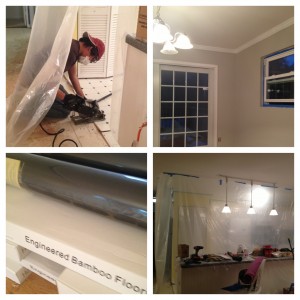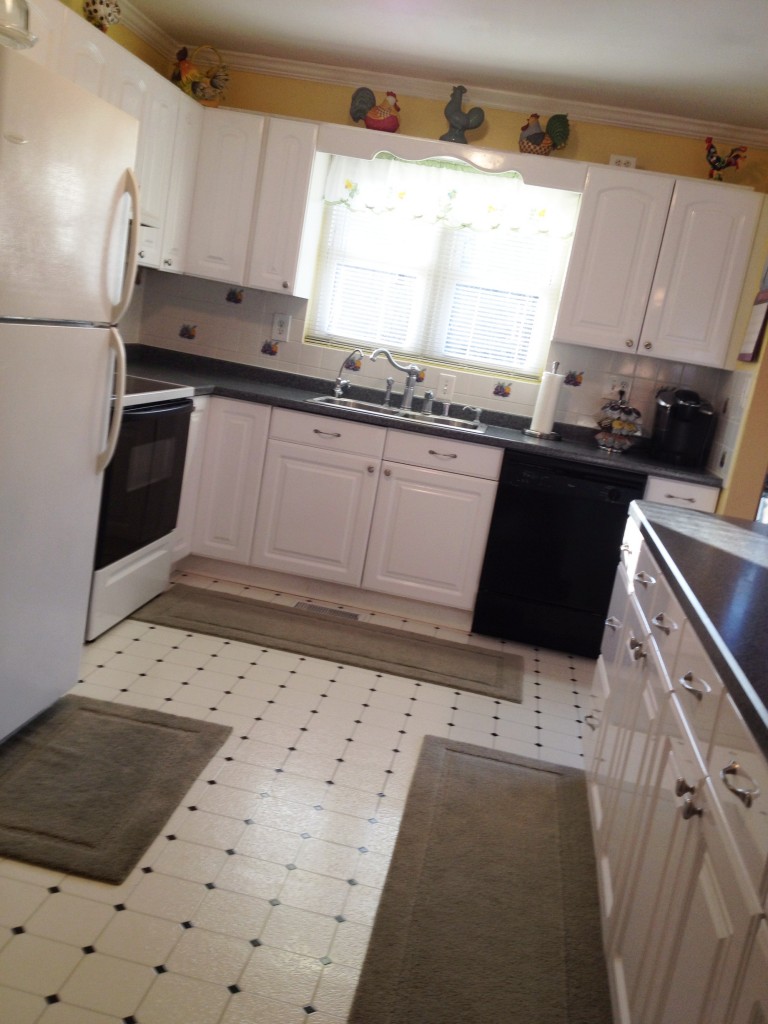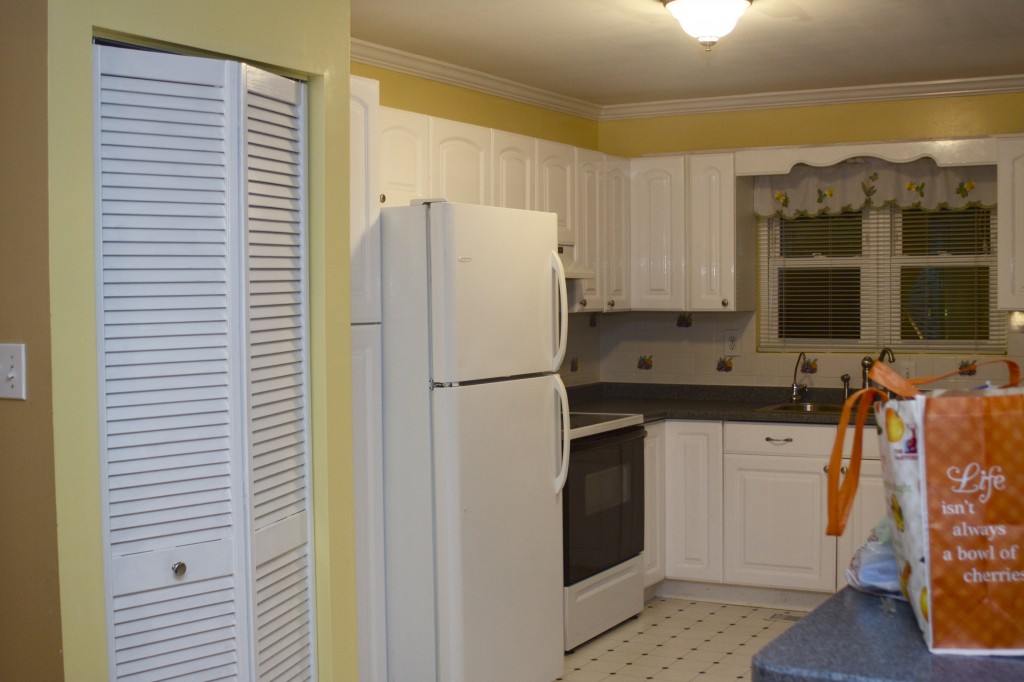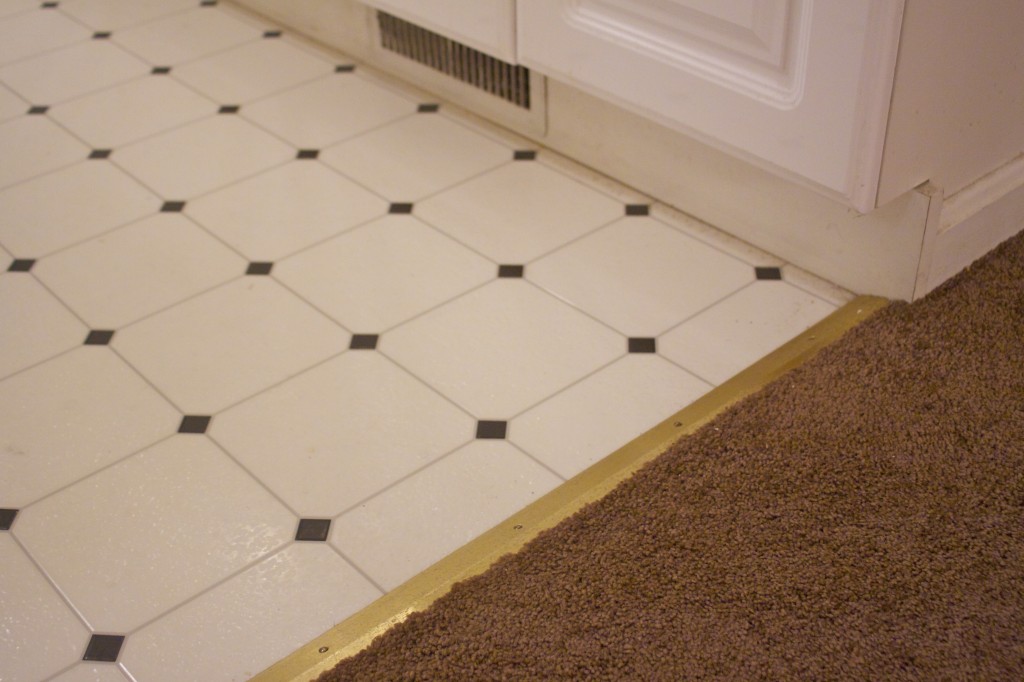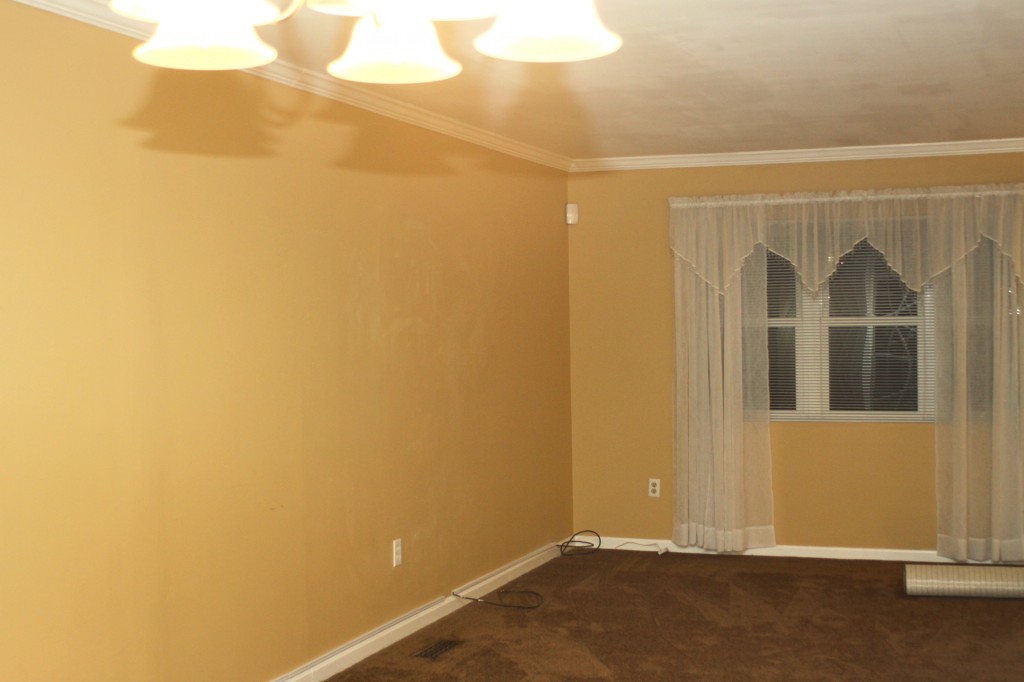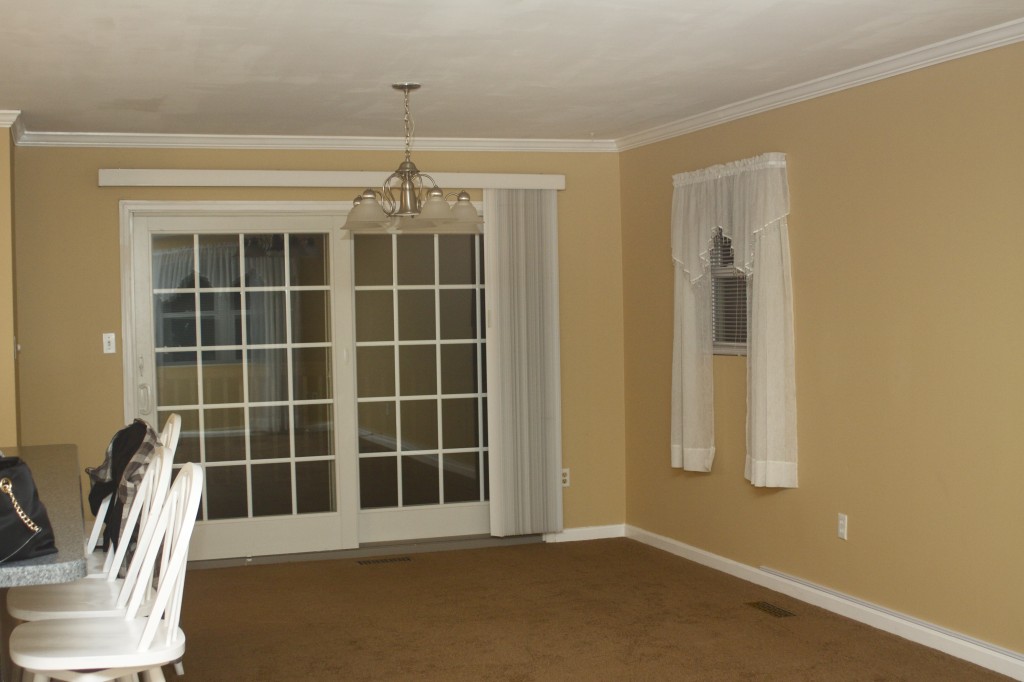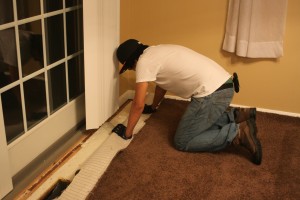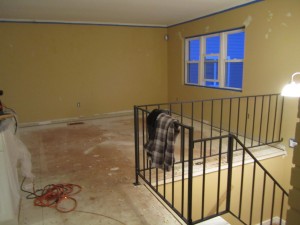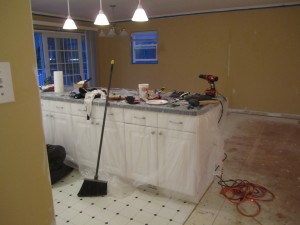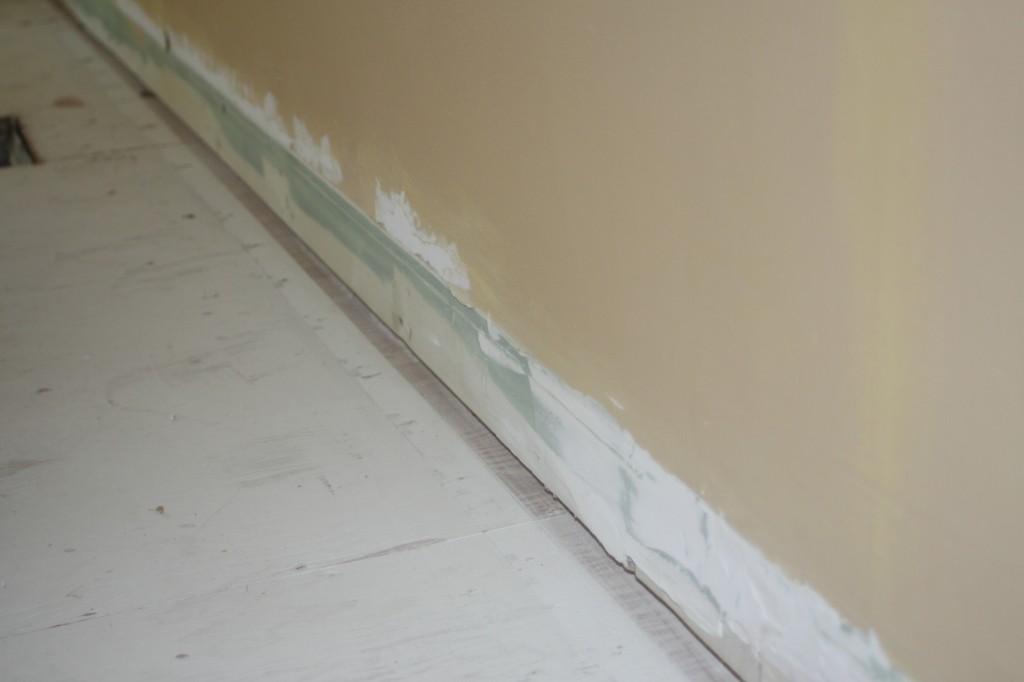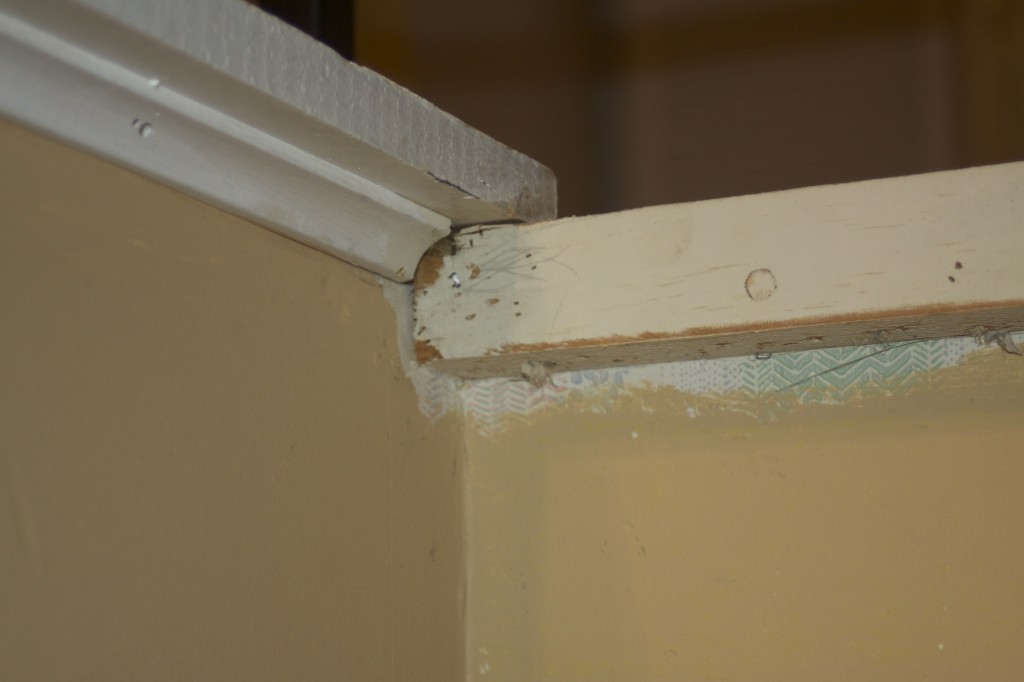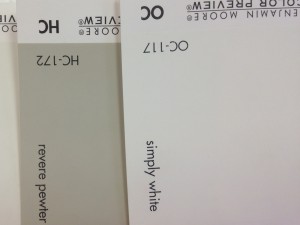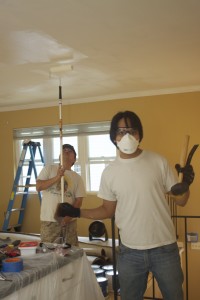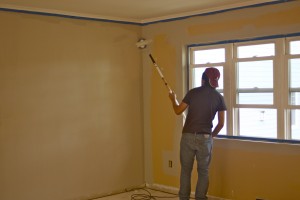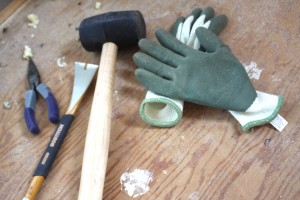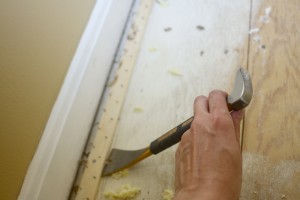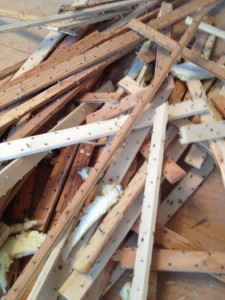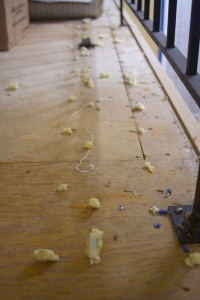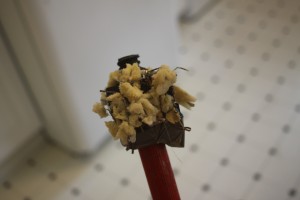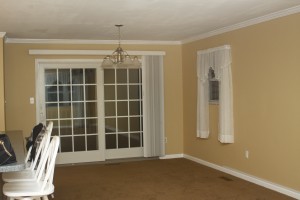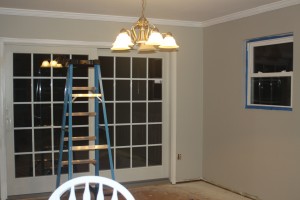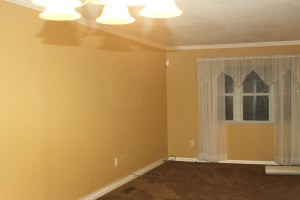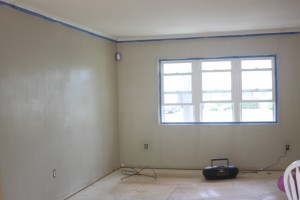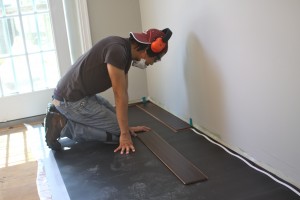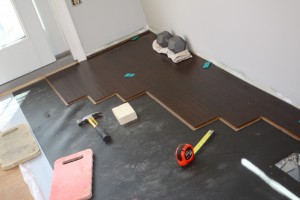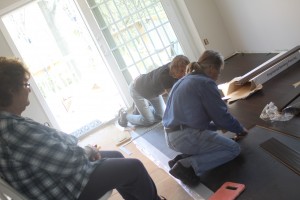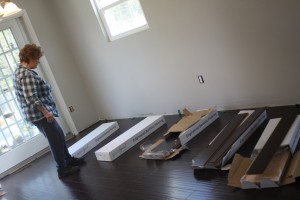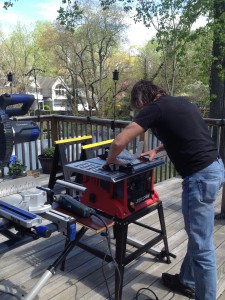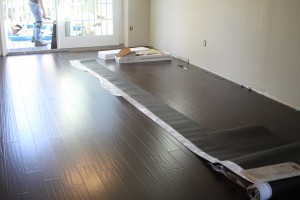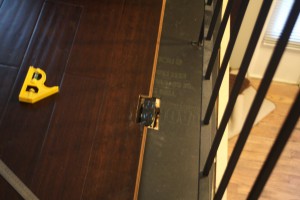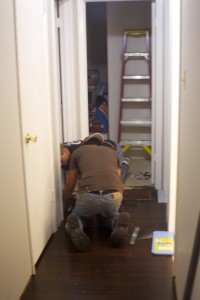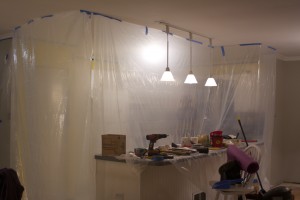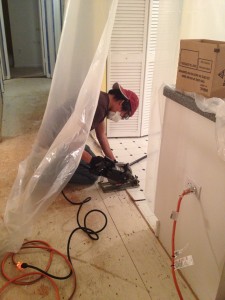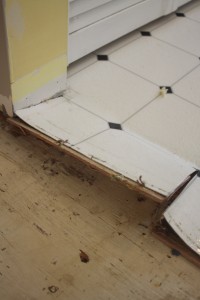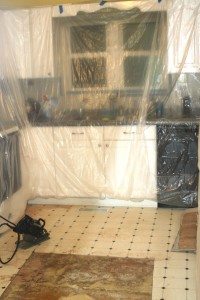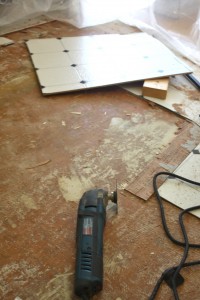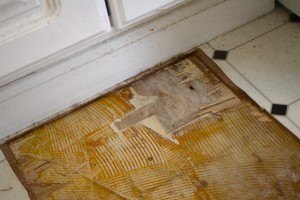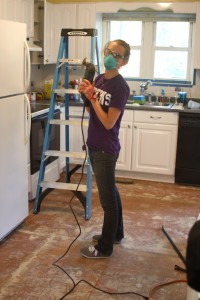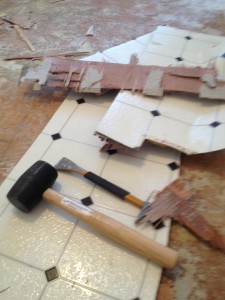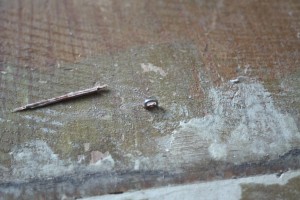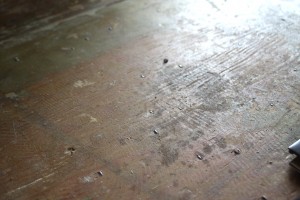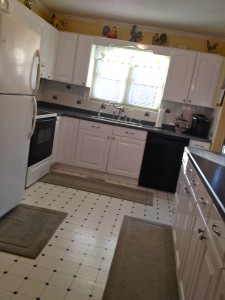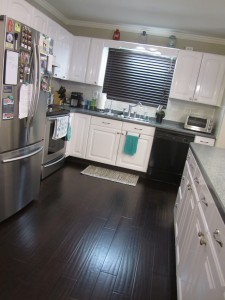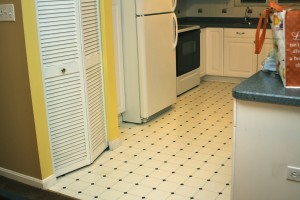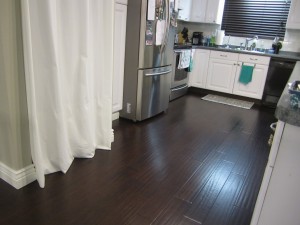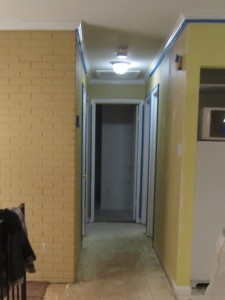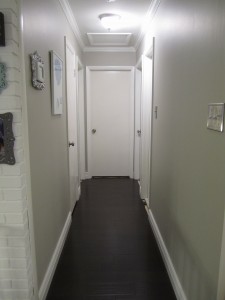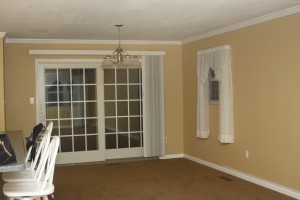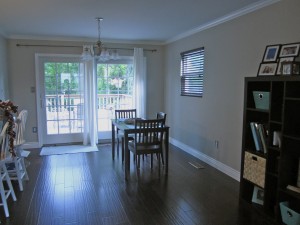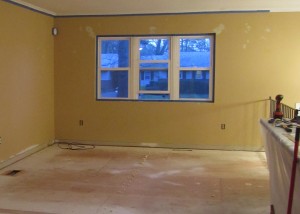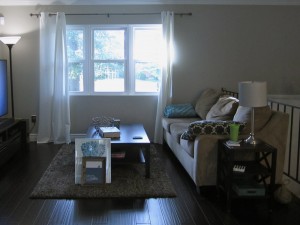We recently purchased our first home! We loved the potential we saw in the house and we did some big renovations before we moved in. The first renovation we did (that had the biggest impact!) was tearing out the brown carpet in the living/dining room/hallway and the linoleum flooring in the kitchen (<<I despise linoleum after having to tear it out!), painting the entire space, and finally putting in those beautiful hardwood floors! We were blessed with about a week off of work when we settled so we were able to put in a lot of elbow grease before we moved in!
Here are some BEFORE pictures..
Kitchen..
Carpet & Linoleum
Living Room..
Dining Room..
The first thing we did was pull up the carpet & padding
Next we pulled off the baseboards; which ended up tearing off some of the dry wall so we spackled/sanded those areas.. and also spackled/sanded all of the imperfections we could find in the walls.. and there were A LOT. We even had an area in the entryway where wallpaper was just painted over.. so I spackled/sanded that as well..
Next, my husband, father-in-law and uncle-in-law painted our ceilings and the entire room!
We used Benjamin Moore Revere Pewter for the walls and Simply White for the ceiling
While the guys were painting, I started pulling up all of the carpet staples and tack strips. I swear there were a thousand staples!!!
For the tack strips, I found the easiest way to remove them was to use a nail remover tool and a rubber hammer. After loosening the strip in a few places, they pulled up easily.
For the staples, I used a large crow bar to slide along the floor and get rid of most of the staples. As for the left over staples, I pulled up with pliers (especially the ones that broke). Below you can see the carpet padding was stuck in most of the staples. I added some magnets to the end of a paint brush extender to pick up all the staples that were left behind!
The new paint made such a difference!
Before installing our new hardwoods, we prepared the subfloor with wood filler wherever there were uneven surfaces and drilled new screws or tightened old ones in any squeaky areas. (The easiest way to see if the floor is even is to use a large level or yardstick and get eye level with the floor to see if there are any gaps)
My dad, grandpa, grandma, brother, and husband put in the hardwood floors!
We bought Strand Woven Hand Scraped Bamboo – Walnut – Engineered Click Lock from Home Depot and used Black Jack underlayment padding
A few tips on installing floors:
Always start on your longest/straightest wall. Use appropriate spacers around the walls for expansion/contraction of the wood (the manufacturer directions will tell you what size to use). When putting the first row down, use weights or something heavy (on a towel so the floor doesn’t get damaged) to keep them in place so that everything will stay straight. The first few pieces should be staggered. Pull pieces from different boxes because the color of wood will vary between boxes. Check each piece as you pull it out to make sure it isn’t warped or cracked. Retailers will suggest buying 10% more than what you need to make up for this. We did not end up needing that much more.
After the first row was down, the process went pretty fast! (Grammy was keeping the guys in line haha)
The time consuming parts were cutting around the vents, outlets, and the kitchen island.
While the first part of the flooring was being put in, I pulled up the linoleum flooring in the kitchen. I had no idea how to go about it so I YouTube’d it! My husband used a circular saw down the middle so it was easier to use a smaller saw to cut out pieces. Linoleum flooring is installed with a layer of wood (glued and stapled on top of the base flooring) and is fairly difficult to remove. After my husband cut through the floor, I used the utility knife to cut pieces of the linoleum and then used the Oscillating tool to cut pieces that I could pull up. I used the crow bar with the scrap wood to rip up the floor. The wood splintered in a lot of places, especially along the cabinets and island so I had to use the Oscillating tool to help remove it completely.
Tools: Circular Saw, Bosch Multi Oscillating Tool, Rubber Hammer, Nail Remover Tool, Crow Bar, Scrap piece of 2×4 (To use as leverage with the crow bar), Utility knife, Dust Mask/Plastic sheeting/Gloves/Safety Goggles
I started down the middle to remove most of it, worked around the perimeter and then pulled out the appliances to remove the linoleum underneath.
Since there was going to be a LOT of saw dust, we quarantined the kitchen with plastic sheeting ceiling to floor! And covered the cabinets/appliances (It was very dusty — while you work, use a vacuum or sweep up the dust often – Wear safety goggles and a DUST MASK!)
Hubby sawing the floor!
Pulling up the floors!
Below you can see the glue and how the wood splintered
Overall, it took about 7 hours to pull all of the linoleum up but in the end it was totally worth it!
After cleaning up, I took a hammer and hit the small staples into the sub floor
And finally the floors were all put in.. and they are so beautiful!!!
Add some new crown molding, base boards, appliances, decor and furniture.. and here you go!
Before and After!
We have updated a lot of our furniture since these pictures.. I will share sometime soon :)
Thanks for sticking around for such a long post! Hope you enjoyed seeing the transformation!
